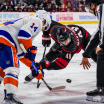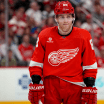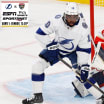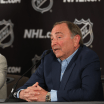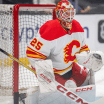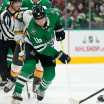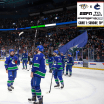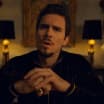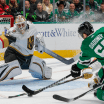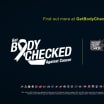In NHL.com's Q&A feature called "Sitting Down with …" we talk to key figures in the game, gaining insight into their lives on and off the ice. In this special offseason edition, we feature new Dallas Stars coach Peter DeBoer, who was hired June 21.
DeBoer talks rejoining Pavelski as Stars coach in Q&A with NHL.com
Discusses time working for Golden Knights, leading Sharks, Devils to Stanley Cup Final
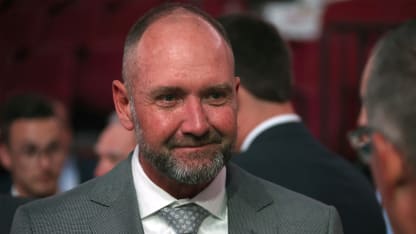
Peter DeBoer is ready to get going again.
The 54-year-old was hired as Dallas Stars coach to replace Rick Bowness, who resigned May 20 after three seasons. It was a quick turnaround for DeBoer, who was fired by the Vegas Golden Knights on May 16. Vegas finished 43-31-8, three points behind the Nashville Predators for the second wild card into the Stanley Cup Playoffs from the Western Conference. The Golden Knights were 98-50-12 under DeBoer, advancing to the playoffs in his first two seasons before not qualifying last season.
The Stars (46-30-6) were the first wild card into the playoffs from the West last season and lost in the first round to the Calgary Flames in seven games after advancing to the Stanley Cup Final in 2020, when they lost the best-of-7 series to the Tampa Bay Lightning in six games.
"Any time you get fired, it sets you back for a little bit," DeBoer said Monday. "And this one in particular I think was probably the toughest one I've been through, just because of the circumstances. Having said that, when Dallas general manager
, Logan] Stankoven,
[Mavrik Bourque
and also Thomas Harley on defense. There's a whole other group that everybody's excited about, knocking on the door.
"I think the nice thing for me, the exciting part for me as a coach is the two times I've been to the Stanley Cup Final, we had teams that had a really nice blend of veteran presence and leadership, but also a young infusion of players coming in. In New Jersey, we had the veterans (such as) Zach Parise and [Ilya] Kovalchuk and Bryce Salvador, but we also had young guys like Adam Larsson coming in. In San Jose, it was the same with Joe Thornton and Pavelski and that group, but also another young group coming in. At that time, it was [Tomas] Hertl and that group of players. I'm excited about the blend and the ability to work with that group."
We always talk about players learning as their careers continue. What have you learned as your coaching career has gone on?
"I think not to waste energy on things you can't control is an important lesson at the NHL level. A coach can't control injuries, can't control the salary cap, can't control things like that. It's a waste of time and resources when you spend too much time on things like that. So, I think you learn that, you learn that the hard way over the years coaching.
"You have to adapt at this level. The League changes, it has subtle changes in style of play every year that you have to keep up with, so there's really no down time. You always have to be looking to what the best teams are doing and try to incorporate that for the following season. And I think the last thing is to try and enjoy the ride. It's the best league in the world with the best athletes in the world and the best cities in the world. As a young coach, you're just trying to survive. You get a little better perspective when you're heading into your 15th year. You try and enjoy it a little bit more."
Who influenced you most as a coach?
"I had great mentors growing up. The captain of my junior team was Paul Maurice, and he was a coach as a 19-year-old already. He was just born for it, so I got to be around a guy like that early in my junior playing career. And our junior coach at the time was a lifelong coach in Tom Webster, who was an NHL player, NHL coach for the Los Angeles Kings, New York Rangers. He was probably the one guy who I would say, and Paul Maurice could say too, that we both looked to and say, 'Wow, that's a pretty good thing to do every day and get paid to do it.' Just the way he handled it.
"This probably, considering the environment, isn't politically correct, but the most impactful part on my coaching career was my experience with Hockey Canada, getting to coach national teams all the way up, starting Under-18, World Juniors, World Championships, because you got to work with all the best coaches in the world. You got to work with Mike Babcock and Ken Hitchcock, Dave King and Tom Renney. From a professional development point of view, that allowed me to get better every year, my experiences with those teams."

